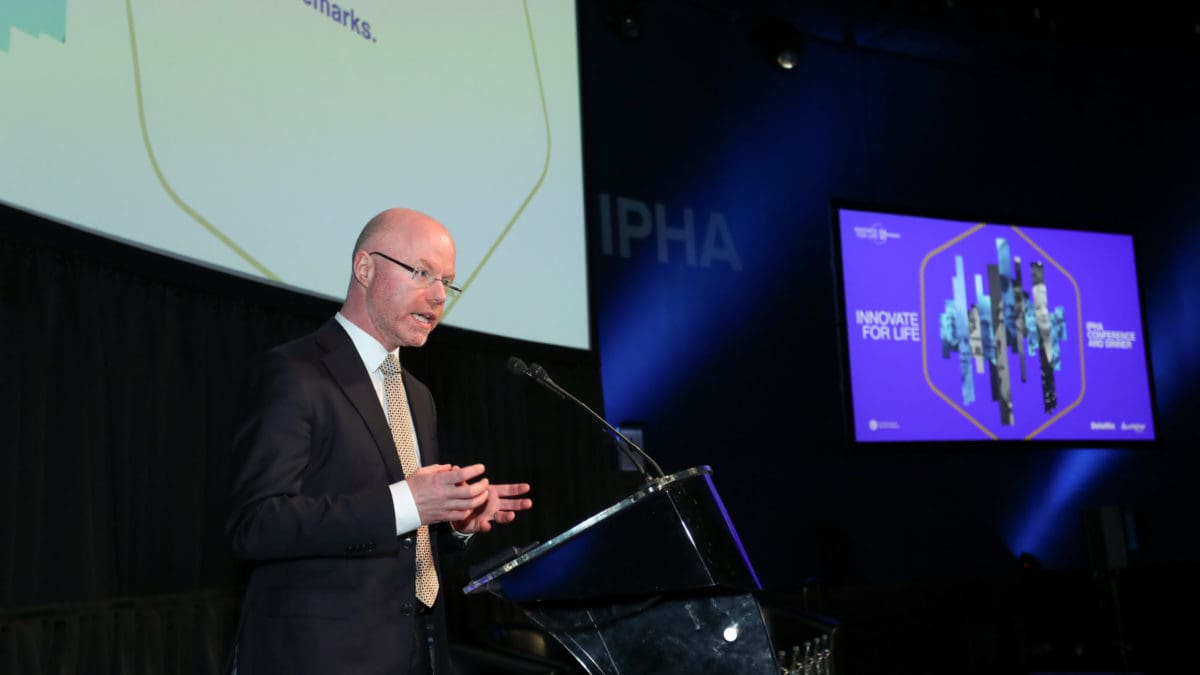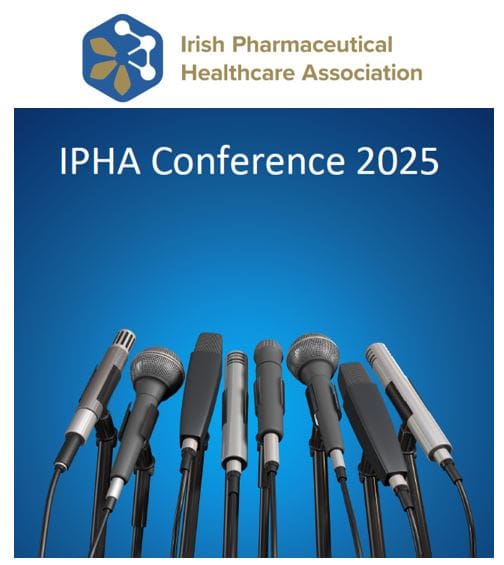IPHA Conference 2023 Minister Donnelly’s speech


Irish Pharmaceutical Healthcare Association (IPHA) Annual Conference, Mansion House Dublin, March 2, 2023.
Good morning, I’m delighted to join you at your annual conference. I’d like to thank your Chairman Michael O’Connell for inviting me to open the event.
When I read your agenda for today, the themes of partnership and innovation stood out. The long-standing collaboration and partnership between the State and your members has stood us well in addressing serious challenges in recent years, from preparing for Brexit to responding to Covid to addressing shortages of medicines in recent months.
I and my colleagues in Government value the very significant contribution made by the pharmaceutical industry in Ireland to patient care and to the economy.
The future of medicines and the need for partnership
Last year I visited the Texas Medical Centre in Houston. I asked the guy running it what the biggest changes were likely to be to patient care over the next decade. It will come as no surprise to any of you that he referenced personalised medicine – the ability to develop and deliver medicines tailored to individual patients, to identify tiny changes in a patient giving several years warning that they might develop a serious disease, and then intervene to stop it happening.
Making this a reality, not just for a few wealthy patients, but for everyone, requires a strategic partnership between the State, universities, research institutions and industry. It means ensuring adequate funding from Government is matched with an understanding from industry that there must be value for money in procurement. We need this to protect public funding for new treatments, orphan drugs and initiatives like the new Genetics and Genomics Strategy which I launched in December.
I am in full agreement with your chairman that we have to find new innovative ways of working together. We need to avoid situations like we see being faced by 35 families seeking access to Kaftrio for their children. For me, the open letter from Irish consultants said all that needed to be said. I want to acknowledge of course that Vertex is not a member of your organisation.
In parallel, the State needs to do more. I know Les Martin is speaking later today. Les has been doing extraordinary work in pushing Ireland to expand the heel prick test and to improve transparency and patient access to the evaluation of different drugs.
Earlier this week I announced the start of a new Rare Disease Plan.
Ireland is a laggard on eHealth, compromising our ability to engage to the fullest extent possible in clinical trials and other medicines research. Some time back I secured Government agreement on unique patient identifiers and will have the Health Information Bill into the Oireachtas shortly. I have also asked for a refresh of the eHealth strategy, which is underway, and am seeking considerable public funds to implement it.
The appraisal and approval process
Last week I published the Mazars report. I want to see improvements in the transparency of the process and have asked the HSE to bring forward proposals in that regard. I want to see greater engagement with stakeholders, including patient groups, to ensure that patients are aware of the process and have sight of various steps and timelines.
I have asked the HSE to introduce an application tracker on their website, detailing how applications progress. I have also asked the HSE to introduce indicative timelines for a medicine to complete the application/approval process.
An Implementation Group is being established between the Department of Health and the HSE to consider and progress the various recommendations contained in the Report as well as other options to improve the process.
That Group will engage with stakeholders, including patient groups and industry, in seeking to bring about further improvements to the reimbursement process. That Group will also be open to new ideas.
Future investment
Of course, an improved and more transparent drug appraisal and approval process only matters if there is funding allocated for new drugs. This is something this Government is aware of and has acted on. The combined funding for new drugs in 2019 and 2020 was €10m. For 2021 and 2022 it was €80m. The full year impact of this €80m is €135m, which is a clear statement of intent from me and Government. The result was 112 new drugs approved, 35 of which are orphan drugs. This year already there are twenty-seven new orphan drugs undergoing pricing and reimbursement assessment.
The Framework Agreements on the Supply and Pricing of Medicines 2021-2025 are central to the provision of these medicines and the State is committed to on-going investment.
Of course, this must deliver real and tangible value for the taxpayer as well as the patient. We have to ensure that the cost of drugs and medicines remains sustainable and that the economic benefits of innovation are realised for all. As you will all appreciate there are growing and extensive demands for enhanced and additional services across the health system, and notwithstanding the unprecedented investment in services by this Government, we must be cognisant that there are finite resources to work with.
The Government is committed to the Framework Agreements and to working with the industry to ensure between us all we can continue to deliver for everyone in the coming years.
International – Beneluxa and EU Pharmacy Strategy
While Ireland’s pharmaceutical industry is one of the biggest producers in Ireland, our country is nonetheless pretty small. As such, partnerships like Beneluxa are critical, particularly when it comes to new medicines for rare diseases. Together we have secured access to Zolgensma for Spinal Muscular Atrophy and work continues with Libmeldy, a treatment for MLD. This is now under joint assessment for reimbursement, and Les Martin and I are in discussions about the process.
Staying on the international theme, you are all of course aware of The Pharmaceutical Strategy for Europe, published in November 2020. It’s fundamentally about ensuring safe, affordable medicines for all citizens and patients. It looks to balance this patient-centred approach with protecting the competitiveness and innovative potential of the European pharmaceutical industry.
I welcome the significant progress that has been made to date including the creation of the Health Emergency Response Authority, the Structured Dialogue initiative and delivery of the Clinical Trials Regulation.
I know the Commission’s current work on the revision of the general pharmaceutical legislation, and the Orphan and Paediatric frameworks, is of major interest to you all, as it is to Government, and we await the formal publication of the proposal in the coming weeks.
I expect that the proposal will contain a number of novel policy options to stimulate innovation, including in the area of antimicrobial resistance. These will warrant careful consideration and I know officials in my department will be keen to hear the views of all stakeholders.
Conclusion
In conclusion, I look forward to continuing to engage with you in the months ahead as we work to ensure that patients in Ireland have timely access to the best medicines, that innovation is fostered and supported and that value for money is secured.
I am sure that today, with a room full of such distinguished delegates, we have the opportunity to consider the best ways forward in achieving all of this.
Thank you all again for this opportunity to open your conference. I hope you have a great day.

